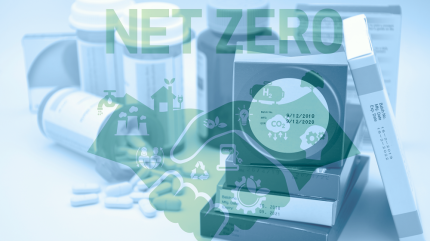
Sustainability in the 21st century is an essential component of business operations. With regard to environmental stewardship, new regulations in many countries are forcing companies to be more transparent about and accountable for their greenhouse gas (GHG) emissions – not just those generated in their own operations but throughout their value chain. In many countries and regions, new reporting frameworks, like the Task Force on Climate-Related Financial Disclosures (TCFD) and IFRS sustainability standards, require businesses to disclose climate-impacting activity.
The risk of non-compliance from a penalty and reputational risk perspective is so high that market intelligence firm GlobalData recently updated its Environmental, Social and Governance (ESG) framework to support businesses understand and execute the changes that will set them on a path to operate within current guidelines, while also getting ahead of future ESG-related regulations.
Companies need a sustainability strategy that can identify and mitigate problems across their entire value chain,” says Christopher Papadopoullos, principal ESG analyst at GlobalData. “Part of this means having constructive and potentially difficult conversations with suppliers. In the pharmaceuticals industry, about 90% of emissions are generated from the supply chain, so that’s huge – and of that, our analysis shows that almost 70% on average comes from upstream, so purchased goods and services, which include inputs like packaging and active pharmaceutical ingredients.
Webinar: Hear how pharma companies can improve sustainability compliance in their supply chain
“To remain competitive in this new world, suppliers must work with their customers to understand their biggest ESG challenges and work out what they can do to overcome these. Introducing science-based emissions targets is a good start as it shows a company has established procedures for tracking emissions and that the company’s sustainability strategy is supported by management.”
From corporate mindset to corporate change
A company emissions targets are considered science-based if they are in line with the 2015 Paris Agreement goals of limiting global warming to 1.5 °C above pre-industrial levels. It tells companies how much and how fast they need to cut emissions. Papadopoullos says getting a net zero strategy validated by the Science Based Targets initiative (SBTi) is helpful in programming the mindset of a business at the corporate level which can then take a strategic approach to formalising environmental initiatives across all divisions.
ACG, one of the world’s leading integrated oral solid dosage manufacturers of capsules, machinery and blister packaging materials, says that its recent application for net zero targets with SBTi has helped to underline its commitment to being a responsible partner to all its stakeholders as well as keeping its division leaders focused becoming a sustainability leader.
Sunil Kumar, head of Sustainability and CSR at ACG, says the journey to becoming a “greener” business partner often has multiple parts and gets more complex the bigger the organisation. ACG produces 140 billion capsules a year, has multiple factory sites and generates 38,000 tonnes of packaging materials a year. Its motto is ‘Make it Better’ and to that end, it has active sustainability programmes in every aspect of its business, from switching out fossil fuels for solar energy to power its factories to reducing waste in its manufacturing processes and introducing ways to measure the carbon footprint of its products through their lifecycle.
Packaging can account for up to 30% of pharmaceutical supply chain emissions from ‘cradle-to-grave’ according to GlobalData, while also creating a toxic pollution nightmare. Historically, blister packs that contain medical capsules and tablets have been made of polymers and energy-intensive laminates made of aluminium and PVC. Recycling these materials is almost impossible with current recycling systems, but innovator manufacturers like ACG are focusing R&D on solving this problem. ACG aims to cut packaging and manufacturing emissions by 5.2% year-on-year in line with its SBTi goals. Part of this approach will be rethinking manufacturing design principles, taking a ‘value engineering’ approach to use less raw material.
“To take the sustainability challenge seriously, quantifying your carbon footprint and being open and honest about it is the first step,” says Kumar. “Then have a realistic and transparent decarbonisation roadmap that matches your SBTi goals. We hope that some of the measures we are taking will help to shape new benchmarks and standards that can then support pharma manufacturing as a whole accelerate its sustainability and net zero journey.”
Read more about ACG’s bold investments and initiatives to become a ‘green’ pharmaceutical manufacturer and support the industry’s efforts to accelerate its journey to sustainability.



